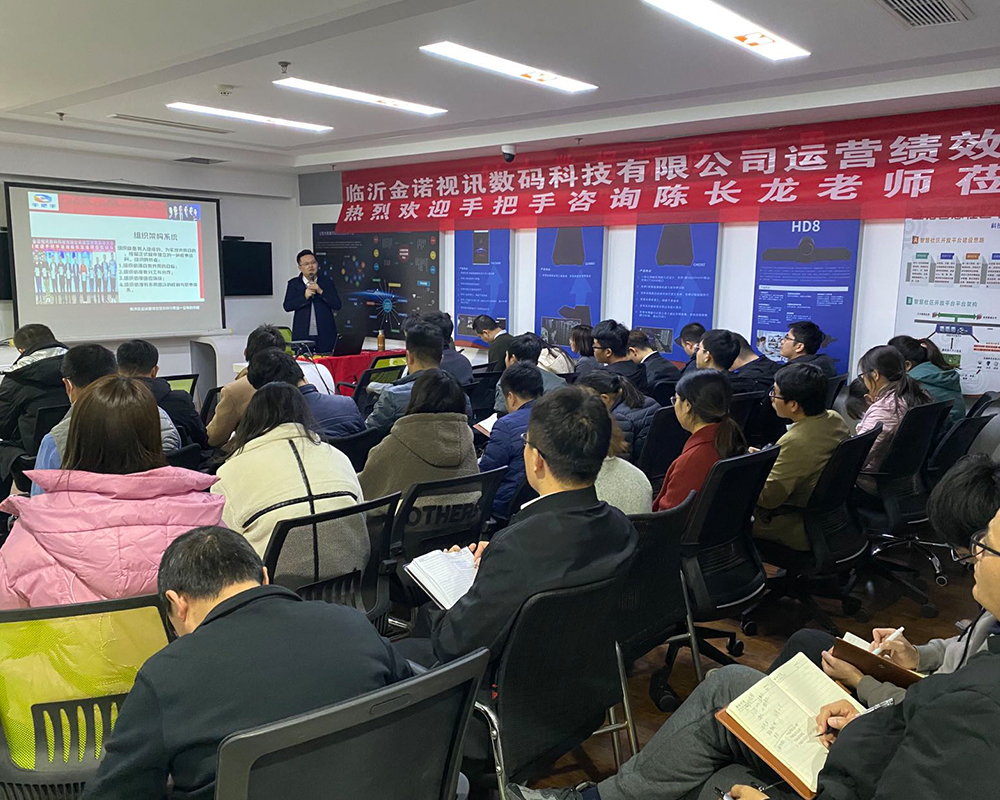

公司動態(tài)
股權(quán)激勵Equity incentive
山東股權(quán)落地 “破冰指南”:化解沖突的智慧密鑰
發(fā)布時間:2025-06-25 來源:http://www.zyvd.cn/
在山東這片商業(yè)熱土上,,股權(quán)落地本是企業(yè)發(fā)展的重要里程碑,卻常因利益糾葛,、權(quán)責(zé)分歧演變成沖突的 “導(dǎo)火索”,。從股東間的話語權(quán)爭奪,到股權(quán)分配的認知偏差,,每一個矛盾都可能阻礙企業(yè)前行,。一套行之有效的沖突解決機制,就像企業(yè)股權(quán)架構(gòu)的 “穩(wěn)定器”,,能將危機轉(zhuǎn)化為發(fā)展契機,。
In the commercial hotbed of Shandong, the landing of equity is an important milestone in the development of enterprises, but it often becomes a "trigger" for conflicts due to conflicting interests and rights and responsibilities. From the struggle for discourse power among shareholders to cognitive biases in equity distribution, every contradiction may hinder the progress of the enterprise. A set of effective conflict resolution mechanisms, like the "stabilizer" of a company's equity structure, can transform crises into development opportunities.
未雨綢繆:以協(xié)議筑牢沖突防線
Be prepared for the future: Build a conflict defense line with agreements
預(yù)防勝于補救,在股權(quán)落地之初,,完善的協(xié)議是化解沖突的第一道屏障,。山東企業(yè)通常會在股東協(xié)議中明確股權(quán)分配依據(jù)與調(diào)整規(guī)則。例如,,以資金投入,、技術(shù)貢獻,、資源導(dǎo)入等要素為權(quán)重,科學(xué)量化股權(quán)比例,,并約定后續(xù)因公司戰(zhàn)略調(diào)整,、新股東加入時的股權(quán)稀釋與動態(tài)調(diào)整方案,避免因模糊條款引發(fā)爭議,。同時,,協(xié)議中還會細化股東權(quán)責(zé),清晰界定決策權(quán),、分紅權(quán),、知情權(quán)的邊界。比如,,規(guī)定重大事項需經(jīng)三分之二以上股東表決通過,,日常經(jīng)營決策由持股超半數(shù)的股東主導(dǎo),減少權(quán)力真空與交叉帶來的矛盾,。此外,,提前設(shè)置退出機制也至關(guān)重要,明確股東因離職,、撤資等原因退出時的股權(quán)回購價格計算方式,、回購主體及流程,避免退出時因利益分割產(chǎn)生糾紛,。
Prevention is better than remedy. At the beginning of equity landing, a sound agreement is the first barrier to resolving conflicts. Shandong enterprises usually specify the basis and adjustment rules for equity distribution in the shareholder agreement. For example, by weighting factors such as capital investment, technological contribution, and resource introduction, scientifically quantifying the equity ratio, and agreeing on subsequent equity dilution and dynamic adjustment plans when the company's strategy is adjusted or new shareholders join, to avoid disputes caused by vague terms. At the same time, the agreement will also refine the rights and responsibilities of shareholders, clearly defining the boundaries of decision-making power, dividend rights, and information rights. For example, it is stipulated that major matters must be approved by more than two-thirds of shareholders' votes, and daily business decisions are led by shareholders holding more than half of the shares, reducing power vacuum and conflicts caused by cross ownership. In addition, it is crucial to establish an exit mechanism in advance, clarify the calculation method, repurchase subject, and process of the equity repurchase price when shareholders withdraw due to reasons such as resignation or withdrawal, and avoid disputes arising from interest division during exit.

溝通協(xié)商:沖突化解的柔性橋梁
Communication and Negotiation: A Flexible Bridge for Conflict Resolution
當(dāng)沖突初現(xiàn)端倪,,溝通協(xié)商是成本最低、效果最直接的解決方式,。山東企業(yè)往往重視建立常態(tài)化的溝通機制,,定期召開股東會議,不僅討論經(jīng)營事務(wù),,更創(chuàng)造開放氛圍讓股東表達訴求與不滿。在溝通過程中,,秉持尊重事實,、求同存異的原則,避免情緒化對抗,。例如,,當(dāng)股東對公司財務(wù)狀況存疑時,可安排專業(yè)財務(wù)人員現(xiàn)場解讀報表,,用數(shù)據(jù)打消疑慮,;若因經(jīng)營策略產(chǎn)生分歧,可組織多方調(diào)研,,結(jié)合市場實際情況分析利弊,,引導(dǎo)股東達成共識,。此外,引入中立第三方協(xié)調(diào)也能打破僵局,,如邀請行業(yè)資深顧問,、法律專家參與溝通,從專業(yè)角度提供建議,,幫助股東理性看待沖突,,找到利益平衡點。
When conflicts first emerge, communication and negotiation are the most cost-effective and direct way to resolve them. Shandong enterprises often attach great importance to establishing a normalized communication mechanism, regularly holding shareholder meetings, not only discussing business affairs, but also creating an open atmosphere for shareholders to express their demands and dissatisfaction. In the process of communication, adhere to the principles of respecting facts, seeking common ground while reserving differences, and avoid emotional confrontation. For example, when shareholders have doubts about the company's financial situation, professional financial personnel can be arranged to interpret the reports on site and use data to dispel doubts; If there are differences in business strategies, multiple research can be organized to analyze the pros and cons based on the actual market situation, and guide shareholders to reach a consensus. In addition, introducing neutral third-party coordination can also break the deadlock, such as inviting industry senior consultants and legal experts to participate in communication, providing advice from a professional perspective, helping shareholders to rationally view conflicts and find a balance of interests.
制度仲裁:公正裁決的剛性保障
Institutional Arbitration: A Rigid Guarantee for Fair Adjudication
若協(xié)商無法達成一致,,明確的仲裁制度能為沖突畫上句號,。山東企業(yè)常選擇在協(xié)議中約定仲裁條款,指定權(quán)威仲裁機構(gòu)處理糾紛,。仲裁具有高效,、保密的特點,且裁決結(jié)果具有法律效力,,能快速平息爭端,。例如,當(dāng)股東間出現(xiàn)股權(quán)代持糾紛,、分紅爭議時,,仲裁機構(gòu)可依據(jù)協(xié)議條款與相關(guān)法律,在短時間內(nèi)作出裁決,,避免爭議長期拖延影響企業(yè)運營,。同時,部分企業(yè)會建立內(nèi)部仲裁委員會,,由熟悉企業(yè)運營的獨立董事,、外部法律顧問組成,針對日常經(jīng)營中較小的股權(quán)沖突進行內(nèi)部裁決,。內(nèi)部仲裁委員會更了解企業(yè)實際情況,,裁決結(jié)果也更易被股東接受,既能降低外部仲裁成本,,又能維護企業(yè)內(nèi)部穩(wěn)定,。
If consensus cannot be reached through negotiation, a clear arbitration system can put an end to the conflict. Shandong enterprises often choose to include arbitration clauses in their agreements and designate authoritative arbitration institutions to handle disputes. Arbitration has the characteristics of efficiency and confidentiality, and the award results have legal effect, which can quickly resolve disputes. For example, when there is a dispute over equity holding or dividend distribution among shareholders, the arbitration institution can make a ruling in a short period of time based on the terms of the agreement and relevant laws, to avoid the long-term delay of the dispute affecting the operation of the enterprise. At the same time, some companies will establish internal arbitration committees composed of independent directors familiar with the company's operations and external legal advisors to make internal rulings on minor equity conflicts in daily operations. The internal arbitration committee has a better understanding of the actual situation of the enterprise, and the arbitration results are more easily accepted by shareholders, which can reduce external arbitration costs and maintain internal stability of the enterprise.
法律兜底:沖突解決的終極防線
Legal fallback: the ultimate defense line for conflict resolution
在所有機制失效時,法律是維護股權(quán)穩(wěn)定的最后保障,。山東企業(yè)在股權(quán)落地過程中,,始終將合法合規(guī)作為底線。一旦沖突升級至法律層面,,企業(yè)會積極收集證據(jù),,依據(jù)《公司法》及相關(guān)法規(guī),通過訴訟維護自身權(quán)益。例如,,當(dāng)出現(xiàn)股東濫用股東權(quán)利,、損害公司利益的情況,企業(yè)可依法提起訴訟,,要求侵權(quán)股東承擔(dān)賠償責(zé)任,;若股權(quán)變更存在程序違法等問題,也可通過法律途徑確認變更無效,。法律訴訟雖耗時耗力,,但能以最權(quán)威的方式界定權(quán)利義務(wù),重塑股權(quán)秩序,,為企業(yè)后續(xù)發(fā)展掃清障礙,。
When all mechanisms fail, the law is the ultimate guarantee for maintaining equity stability. Shandong enterprises always regard legality and compliance as the bottom line in the process of equity landing. Once the conflict escalates to the legal level, companies will actively collect evidence and protect their rights through litigation in accordance with the Company Law and relevant regulations. For example, when shareholders abuse their rights and harm the interests of the company, the enterprise may file a lawsuit in accordance with the law to demand that the infringing shareholders bear compensation liability; If there are issues such as procedural violations in the equity change, the change can also be confirmed as invalid through legal means. Although legal litigation is time-consuming and laborious, it can define rights and obligations in the most authoritative way, reshape equity order, and clear obstacles for the subsequent development of enterprises.
本文由山東股權(quán)友情奉獻.更多有關(guān)的知識請點擊:http://www.zyvd.cn真誠的態(tài)度.為您提供為全面的服務(wù).更多有關(guān)的知識我們將會陸續(xù)向大家奉獻.敬請期待.
This article is about Shandong Equity Incentive Friendship Dedication For more information, please click: http://www.zyvd.cn Sincere attitude To provide you with comprehensive services We will gradually contribute more relevant knowledge to everyone Coming soon.
本站聲明
本網(wǎng)站為非營利性網(wǎng)站,,旨在宣揚股權(quán)知識,交流職業(yè)學(xué)習(xí)心得,。網(wǎng)站內(nèi)部分文章來自其它網(wǎng)站,,只做交流學(xué)習(xí)之用。相應(yīng)的權(quán)力均屬于原權(quán) 力人,,如權(quán)利人認為不妥,,請來電來函說明,本網(wǎng)站隨既停止或使用,,謝謝合作,! 13698613138
13698613138
微信公眾號

掃碼獲知更多知識

抖音二維碼
山東股章企業(yè)管理顧問有限公司 備案號:魯ICP備19050574號-2 網(wǎng)站建設(shè)·推廣運營 網(wǎng)站地圖 XML TXT

截屏,微信識別二維碼